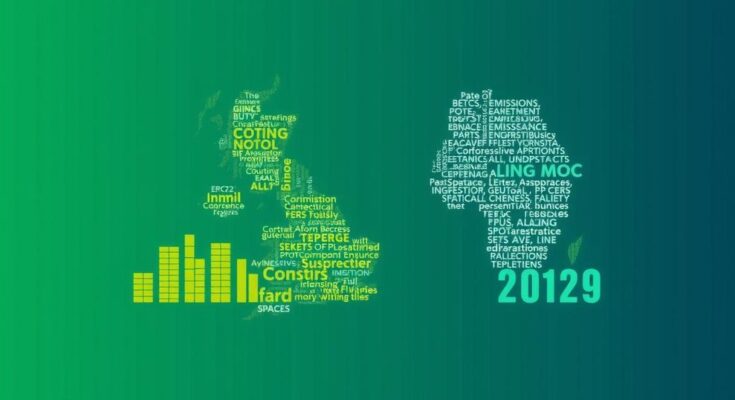At COP29 in Baku, leaders presented conflicting views on climate action as a new report indicated urgent needs for reduced emissions to meet global warming targets. The report urged a shift to net-zero CO2 emissions by the late 2030s. Divergent opinions highlighted the gap between countries relying on fossil fuels and those experiencing climate crises, prompting discussions on financial commitments necessary for effective climate mitigation and adaptation.
During the COP29 climate talks in Baku, global leaders presented clashing perspectives on addressing climate change while a new report underlined the urgency for reducing carbon emissions faster than previously targeted. The report from the Global Carbon Project highlighted record high emissions from fossil fuels, necessitating a net-zero target by the late 2030s to maintain the Paris Agreement goal of limiting global warming to 1.5 degrees Celsius. Azerbaijan’s chief negotiator, Yalchin Rafiyev, emphasized the narrowing window for action on climate change and the need for urgent measures to secure funding for vulnerable nations. Meanwhile, discussions on advanced climate finance proposals revealed a lack of consensus on the financial commitments necessary to support developing countries effectively. The dynamic at the conference reflected a deep divide among participating countries, some advocating for a continued reliance on fossil fuels and others demanding radical reductions. Albanian Prime Minister Edi Rama criticized empty rhetoric surrounding climate initiatives, pointing out that mere speeches would not instigate change. In contrast, Italian Prime Minister Giorgia Meloni called for a more pragmatic approach to balancing decarbonisation with economic stability, suggesting that an ideological stance could hinder progress. From island nations threatened by rising sea levels, leaders like Tuvalu’s Prime Minister Feleti Penitala Teo stressed the immediacy of phasing out fossil fuels. As the discussions progressed, negotiators released a new draft funding agreement that reflected the differing priorities and expectations of both rich and developing nations. Many poorer countries emphasized the need for substantial financial commitments rather than relying on uncertain private sector contributions. Countries like The Bahamas lamented the disproportionate burden of climate-related debt compared to climate finance received, questioning the global community’s will to mobilize resources for climate action, which seemed more accessible for wartime or pandemic responses. As the COP29 negotiations unfolded, the urgency of the climate crisis and the stark disparities between nations emphasized the need for effective collaboration and innovative solutions to address the challenges ahead.
The COP29 climate talks represent a critical platform for nations to negotiate and strategize on their commitments towards addressing climate change. As the impacts of global warming intensify, the urgency for countries to meet established targets under the Paris Agreement has never been greater. The recent report from the Global Carbon Project underscores the rising trend of fossil fuel emissions, highlighting the inadequacies of current climate action initiatives. Divergent views among nations regarding the role of fossil fuels and the financing required for adaptation and transition to sustainable energy sources reflect broader geopolitical and economic tensions. This gathering aims to unify these divergent perspectives towards a common goal of combating climate change.
The COP29 climate talks underscored the critical urgency for nations to take swift action against climate change, with the latest research calling for accelerated efforts to achieve net-zero emissions by the late 2030s. Leaders expressed contrasting visions, highlighting the rift between those advocating for fossil fuel reliance and those demanding phase-outs amidst escalating climate-related threats. The negotiations surrounding climate finance exposed deep-seated issues regarding resource allocation between developed and developing countries, signaling that achieving meaningful progress requires consensus, commitment, and collaborative action.
Original Source: www.rfi.fr




